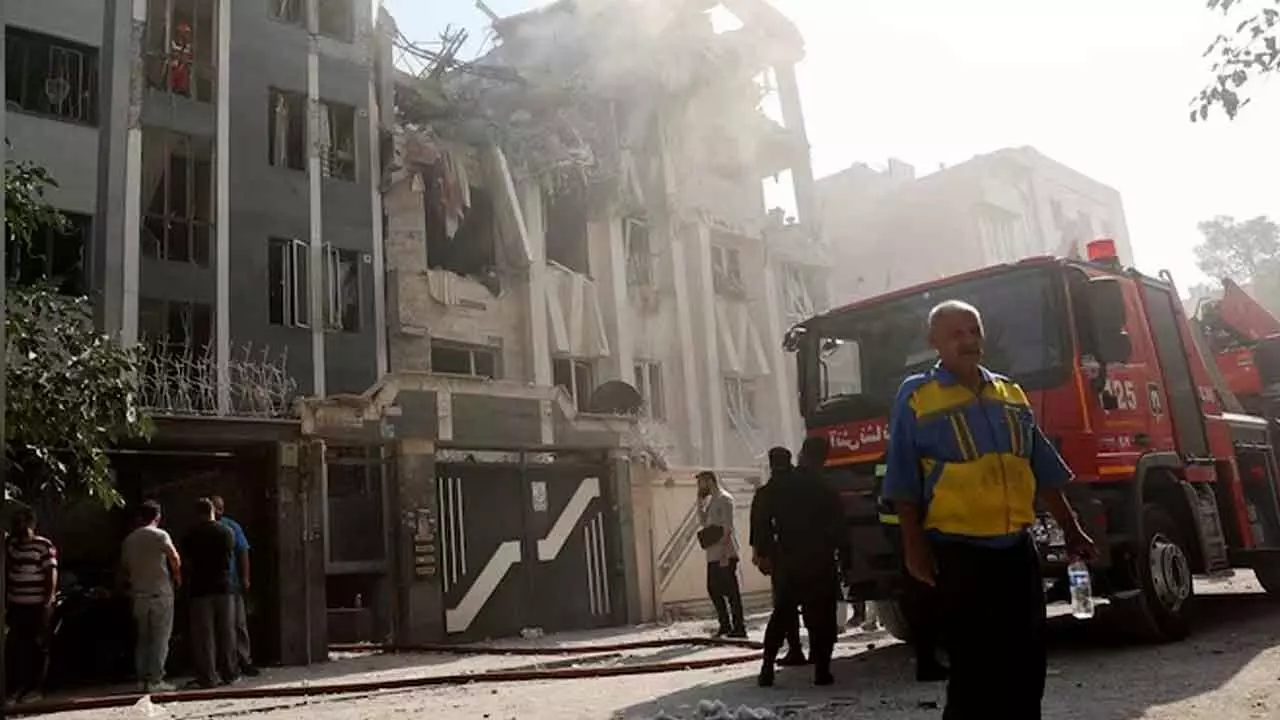Indian Students in Iran: A Nation Holds Its Breath Amid Escalating Tensions
Indian students in Iran are being moved to safer locations as the Israel-Iran conflict intensifies. Learn about the Indian government's efforts, parental appeals, and the volatile situation impacting over 1,500 students, primarily from Jammu & Kashmir
Indian Students in Iran: A Nation Holds Its Breath Amid Escalating Tensions

The air in the Middle East crackles with an unsettling tension, and as missiles continue to soar between Israel and Iran, a quiet drama is unfolding for thousands of Indian students caught in the crossfire. Early Monday, the Indian government confirmed it's working diligently to move some of its young citizens to "safer places" within Iran, with "other feasible options" actively being explored. It's a testament to the anxious reality faced by families back home, praying for the well-being of their children.
The Indian Embassy in Tehran, working tirelessly, is keeping a vigilant eye on the evolving security landscape. Their efforts extend to direct engagement with Indian students, aiming to ensure their safety amidst the escalating conflict. In situations where immediate relocation is deemed necessary, the Embassy has stepped in, facilitating moves to more secure locations within Iran. This proactive approach offers a glimmer of reassurance in an otherwise volatile situation.
The urgency of the situation was underscored by a recent conversation between Jammu and Kashmir Chief Minister Omar Abdullah and External Affairs Minister S Jaishankar. With over 1,500 Indian students, a significant number hailing from Jammu and Kashmir, finding themselves in this precarious position, the pressure on the government is immense. Many of these students are pursuing vital professional courses, particularly MBBS, in cities like Tehran, Shiraz, and Qom – dreams now overshadowed by the looming threat of conflict.
Heart-wrenching appeals from worried parents have reached the highest echelons of power, with fervent pleas directed at Prime Minister Narendra Modi and Minister Jaishankar to facilitate the safe return of their children. The longing for their loved ones to be back on Indian soil is palpable, a shared sentiment across countless households.
In the face of such uncertainty, the Indian Embassy in Iran has been a consistent source of guidance. Earlier advisories urged all Indian nationals and Persons of Indian Origin to remain vigilant. Crucially, they’ve provided easily accessible tools like a Google form on their X (formerly Twitter) account, encouraging citizens to register their details for better communication and support. The message has been clear: "Please remember, it is important not to panic, exercise due caution and maintain contact with the Embassy of India in Tehran." They've also established a Telegram group, a vital lifeline for real-time updates from the mission.
This unfolding humanitarian effort comes against the backdrop of a rapidly deteriorating geopolitical situation. Last Friday, Israel launched "Operation Rising Lion," a surprise attack that reportedly targeted key Iranian military command structures and nuclear sites. Iran swiftly retaliated with its own air strikes, leading to a barrage of hundreds of missiles exchanged by both nations over the past three days. While Israel has indicated a willingness to escalate further, Iran has ominously vowed to "open the gates of hell" in response.
As the world watches with bated breath, the focus remains firmly on the safety and well-being of these Indian students. It’s a stark reminder of how global conflicts can ripple across borders, impacting individual lives in profound ways.

